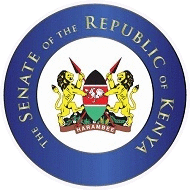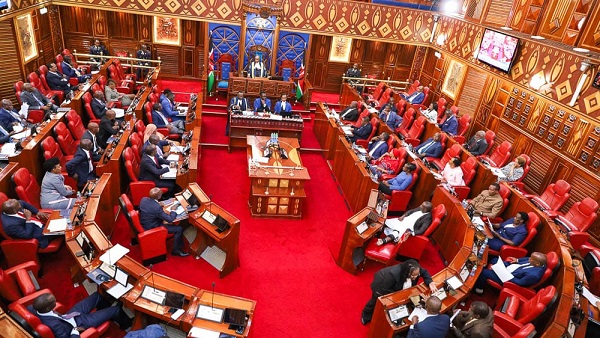INFORMATION BRIEF ON PETITIONS
PETITION TO PARLIAMENT UNDER ARTICLES 37 AND 119 OF THE CONSTITUTION
The right to petition Parliament in a democracy is of immense importance for safeguarding the rights of the citizens. The Constitution of Kenya in Articles 37 and 119 gives a broader framework to any citizen a right to petition public authorities and in particular Parliament to consider any matter within its authority, including to enact, amend or repeal any legislation. This can be done by any citizen or by a Member of Parliament on behalf of the citizen(s).
As required by the Constitution, Parliament enacted the Petitions to Parliament (Procedure) Act (No. 12 of 2012) to make provision for the procedure for the exercise of this right. Further, Part XXVII of the Standing Orders of the Senate also make provision of how this right will be enjoyed or exercised.
Requirements for a Public Petition under the Petitions to Parliament (Procedure) Act (No. 12 of 2012) and the Senate Standing Orders
A public petition to the Senate shall –
(a) Be handwritten, printed or typed;
(b) Be in English or Kiswahili and be written in respectful, decorous and temperate language;
(c) Be free of alterations and interlineations in its text;
(d) Be addressed to the Clerk of the Senate;
(e) Have its subject-matter indicated on every sheet if it consists of more than one sheet;
(f) Indicate whether any efforts have been made to have the matter addressed by a relevant body and whether there has been any response from that body or whether the response has been unsatisfactory;
(g) Indicate whether the issues in respect of which the petition is made are pending before any court of law or other constitutional or legal body;
(h) Conclude with a clear, proper and respectful prayer, reciting the definite object of the petitioner or petitioners in regard to the matter to which it relates;
(i) Subject to paragraph (m), contain the names, addresses, identification numbers, signature or a thumb impression of the petitioner or of every petitioner, where there is more than one petitioner;
(j) Contain only signatures or thumb impressions, as the case may be, and addresses and identification numbers written directly onto the petition and not pasted thereon or otherwise transferred to it;
(k) Not have any letters, affidavits or other documents annexed to it;
(l) In the case of a petition presented by a Member of Parliament on behalf of a petitioner, be countersigned by the Member presenting it; and
(m) Be signed by the petitioner, or if the petitioner is unable to sign, by a witness in whose presence the petitioner shall make his or her mark on the petition.
Committal of Petitions
Every Petition presented stands committed to the relevant Standing Committee which will have not more than sixty(60) calendar days from the time of reading the prayer, to respond to the petitioner(s) by way of a report tabled in the Senate. The Senate Standing Orders provide that the Clerk shall, within fifteen days of submission of a report of a petition, notify the petitioner in writing.
NOTE:
Duly completed petitions together with a scanned copy of the page indicating the name and signature of the petitioner(s) may be submitted to email address, clerk.senate@parliament.go.ke
For further inquires
You may get in touch through -
The Director, Legislative and Procedural Services,
Email: clerk.senate@parliament.go.ke
Tel: 254 020-2848000 (Ext.3284)
Template on Petitions
Below is a template which any member of the public may use to submit a petition to the Senate.















